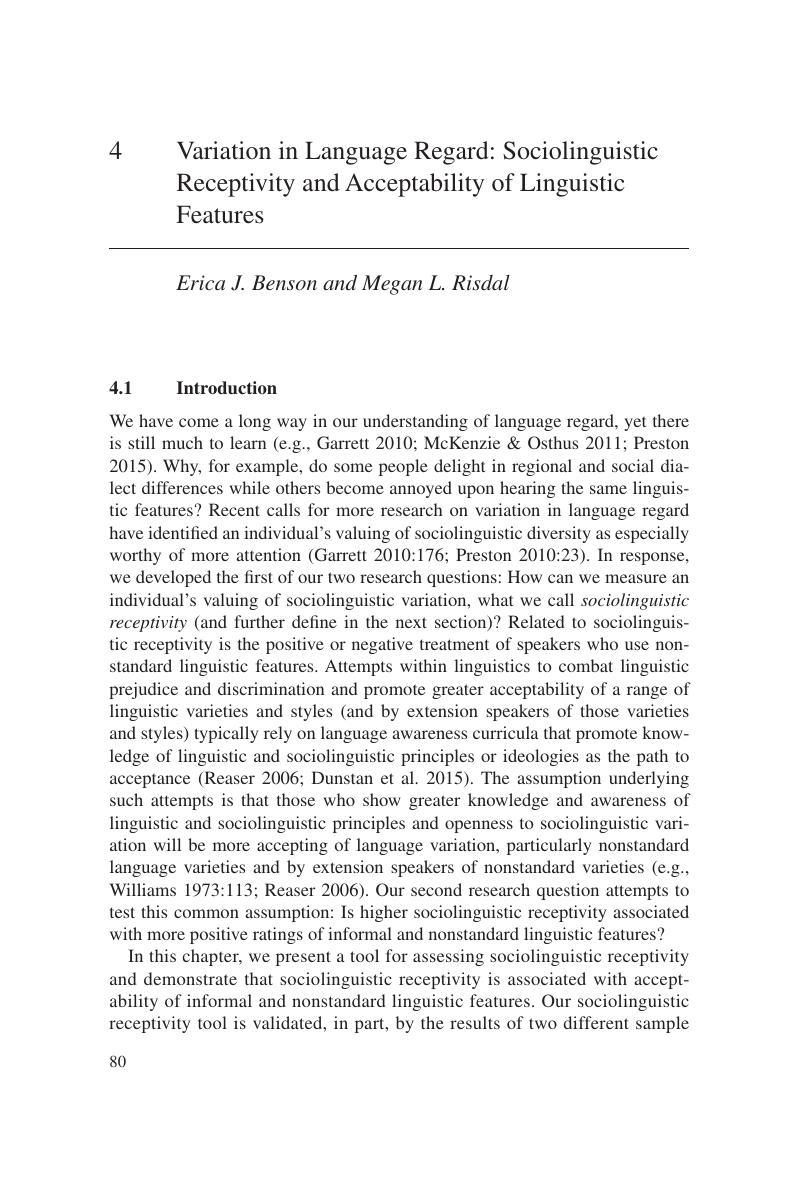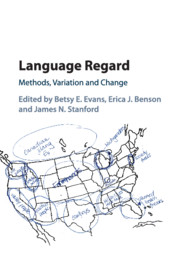Book contents
- Language Regard
- Language Regard
- Copyright page
- Dedication
- Contents
- Figures
- Tables
- Notes on Contributors
- Preface
- Acknowledgments
- Introduction
- Part I Language Regard: Varied Methods
- 2 A Variationist Approach to Studies of Language Regard
- 3 The Emic and the Etic in Perceptual Dialectology
- 4 Variation in Language Regard: Sociolinguistic Receptivity and Acceptability of Linguistic Features
- 5 Social Meanings of the North–South Divide in the Netherlands and Their Linkage to Standard Dutch and Various Dialects
- 6 Language Subordination on a National Scale: Examining the Linguistic Discrimination of Hungarians by Hungarians
- 7 Regional Identity and Listener Perception
- Part II Language Regard and Language Variation
- Part III Language Regard and Language Change
- Index
- References
4 - Variation in Language Regard: Sociolinguistic Receptivity and Acceptability of Linguistic Features
from Part I - Language Regard: Varied Methods
Published online by Cambridge University Press: 12 January 2018
- Language Regard
- Language Regard
- Copyright page
- Dedication
- Contents
- Figures
- Tables
- Notes on Contributors
- Preface
- Acknowledgments
- Introduction
- Part I Language Regard: Varied Methods
- 2 A Variationist Approach to Studies of Language Regard
- 3 The Emic and the Etic in Perceptual Dialectology
- 4 Variation in Language Regard: Sociolinguistic Receptivity and Acceptability of Linguistic Features
- 5 Social Meanings of the North–South Divide in the Netherlands and Their Linkage to Standard Dutch and Various Dialects
- 6 Language Subordination on a National Scale: Examining the Linguistic Discrimination of Hungarians by Hungarians
- 7 Regional Identity and Listener Perception
- Part II Language Regard and Language Variation
- Part III Language Regard and Language Change
- Index
- References
Summary

- Type
- Chapter
- Information
- Language RegardMethods, Variation and Change, pp. 80 - 95Publisher: Cambridge University PressPrint publication year: 2018
References
- 4
- Cited by



